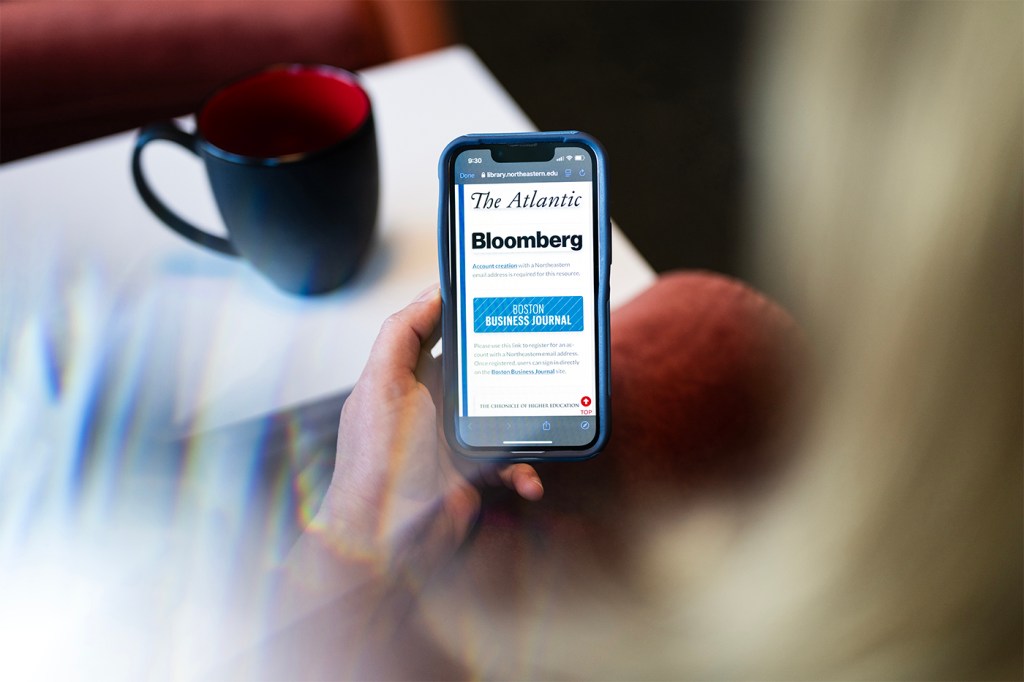Perk of the week: News and magazine subscription access
Say a farewell to paywalls thanks to this Northeastern University library program.

What is it?
Through the library, students, faculty and staff across Northeastern’s global network get free access to nearly two dozen of some of the most popular online newspaper and magazine subscriptions available. In addition to academic journals, those with an active NU ID can read the Washington Post, Wall Street Journal, Atlantic Monthly, The Economist, the New York Times (minus special sections like Cooking, Wirecutter and Games) and more.
Ryan McNally, the e-resource technology coordinator in Snell Library, is constantly working to add more, too. In December, he secured access to Endpoints News, which covers the biotech and pharmaceutical industries.
What’s the best way to get access?
McNally recommends starting at the NU library website’s Popular Publications page on a desktop. Then follow the prompts to either create an account for the site you’d like to read with your northeastern.edu email address, or access the site directly, depending on the publication.
Does it work off campus?
Yes, but McNally says that in the past, remote access to the service was a little sticky. Especially as Northeastern’s global network expanded and WiFi, not wired web access, became more standard, users could be easily locked out of their access.
To smooth over that issue, he recommends LibKey Nomad, a new browser extension that will lead to a direct link or PDF download of the library’s e-resources, including popular subscriptions. Another huge benefit: the plugin alerts browser users if they’re on a paywalled site they can access through Northeastern.
“If someone has this installed and they’re cruising the Washington Post, they’re going to get a little pop up that says, ‘Northeastern has a subscription for this. Here’s a link to sign up,’” McNally explains.
How much can it save me?
According to a recent Reuters report, the median monthly cost of one full-price news subscription in North America is $16, or about $200 per year. So even if you read just a handful of library-partnered publications regularly, it adds up. And if you’re having trouble setting things up, or have suggestions to improve the service, McNally hopes you’ll send him an email.
